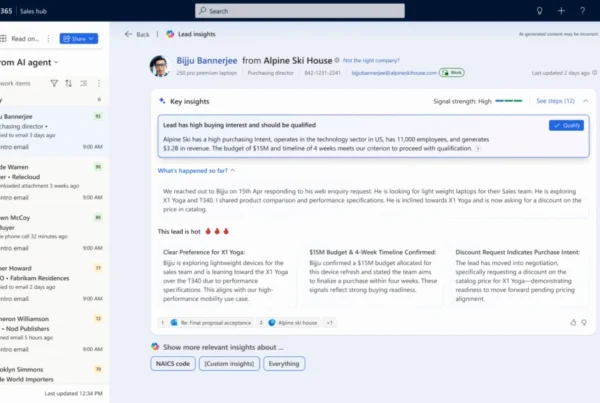Great customer service is absolutely critical to any organization’s success. Today, organizations require modern solutions that can help them support customers on the channels and touchpoints of their choice, by providing customers with self-service options and arming customer support agents with access to information and experts to resolve issues quickly and efficiently. We are pleased to share the results of a March 2024 Forrester Consulting Total Economic ImpactTM (TEI) Study commissioned by Microsoft. Forrester calculates Dynamics 365 Customer Service delivered benefits of $14.70 million over three years to a composite organization. The total investment required was $3.54 million over three years and provided a ROI of 315% with a payback period of less than six months.

Methodology and purpose
Forrester’s TEI study is a methodology developed specifically to assist companies with the complexities of procuring technology solutions. The TEI study also aids technology vendors in objectively evaluating and communicating their solutions’ value proposition. To these ends, the TEI study discussed here provides a framework for business-decision-makers to assess the potential financial impact of implementing Dynamics 365 Customer Service.
dynamics 365 customer service drives roi and enhances operations
Ultimately, the financial impact of the 2023 study is a projection for a composite organization developed by Forrester through real-world interviews with five businesses that currently use Dynamics 365 Customer Service. These businesses’ experiences and the interview results are aggregated to create a composite organization to obtain data about costs, benefits, and risks. For this study, the composite organization is a $1 billion industry-agnostic organization that operates at multiple locations around the world. It has 5,000 employees total, and 500 of those are customer support agents who support a growing customer base. Each agent works an average of six hours a day and spends 75% of that time on support interactions.
Continue reading to learn what key challenges the composite organization faces and the study’s critical findings.
Key challenges
In the interviews conducted for this TEI study, the organizations shared the following common challenges:
- A disparate stack of aging customer support and customer relationship management (CRM) solutions.
- Siloed customer data, which led to suboptimal support.
- Increasing support capacity requirements.
- An inconsistent and one-sized customer experience.
With these challenges top of mind, the organizations wanted to find and invest in a customer service solution that could:
- Integrate seamlessly with other Microsoft solutions, including other Microsoft Dynamics 365 modules, Microsoft Power BI, and Microsoft Teams.
- Deliver automation and AI-driven insights to the customer support function to enable agents to deliver a better support experience while limiting the requirements for additional support agents.
- Help establish and curate a knowledgebase to help agents further support the customer experience.
Key findings
Microsoft Dynamics 365 Customer Service provides service organizations’ agents the tools they need to deliver faster, seamless, personalized experiences across any channel. Dynamics 365 Customer Service simplifies and automates support agent processes with Microsoft Copilot in Dynamics 365 Customer Service while delivering faster support experiences to organizations’ customers, which can improve customer satisfaction and lead to additional revenue and profit.
Forrester’s study revealed four quantifiable impact areas: improved handling times leading to greater agent productivity, improvements to first-call resolution and misrouted calls, improvement to sales pipeline generation leading to revenue increases, and cost savings after retiring other customer service solutions.
Let’s take a closer look at each of these areas below to understand how Dynamics 365 Customer Service delivers value for customer support organizations.
Reduced call handling time by 40%
Interviewees noted several inefficiencies across their organizations’ previous customer service solutions that increased agents’ interaction time with customers:
- Multiple solutions for different support functions, leading to siloed customer data and relevant support information.
- Lack of visibility into customer histories and best practices for service and resolution.
- A one-size-fits-all approach to service-case routing.
- No automation for common support tasks.
Implementing Dynamics 365 Customer Service enabled their organizations to automate manual aspects of their agents’ daily responsibilities, which helped to reduce the time they spent searching for customer information and best practices. Because agents were able to have shorter, more efficient interactions with customers, the composite organization saved an average of 468 hours per agent each year.
Improved first-call resolution by 20%—and decreased misroutes by 15%
With their legacy customer support tools, agents at the study’s participant organizations had no easily accessible customer knowledge base with records of common support issues. They also had no easy way to locate specialists who could help resolve issues, so calls were frequently misrouted to the wrong specialists.
With Dynamics 365 Customer Service, they found they could automatically route support cases to the best specialists depending on the nature of the case. This helped them to both increase first-call resolution rates by 20% and shorten the overall time of interactions. They also decreased the times agents misrouted calls to the wrong specialists by 15%. Overall, the composite organization’s agents saved up to 292 hours per year.
Increased sales pipeline generation to drive additional profitability
Some interviewees shared revenue impact to their organizations’ revenue based on the implementation of Dynamics 365 Customer Service. A CRM product manager at a travel and hospitality organization explained that because Dynamics 365 Customer service automates the majority of searches performed by agents, they can spend more time on revenue-linked interactions. Another interviewee at a manufacturing organization said that customer information and leads are shared between support agents using Dynamics 365 Customer Service and salespeople using Microsoft Dynamics 365 Sales, enabling salespeople to see customer interactions and identify opportunities for new revenue.
Saved up to $978,000 in costs on retired customer service solution(s)
By implementing Dynamics 365 Customer Service, participant organizations were able to retire their previous customer service solutions, saving costs on license fees, infrastructure, and personnel maintenance hours. Interviewees from one manufacturing organization said their company reclaimed nearly $100,000 annually by decommissioning two third-party customer service solutions made redundant by Dynamics 365 Customer Service.
Other benefits

Forrester Consulting Total Impact Study
See the total economic impact of Dynamics 365 Customer Service
Study participants mentioned additional benefits to their organizations that were not quantified for this report, including:
- Integration with other Microsoft products including Microsoft Power BI for discovering and predicting common support issues and Teams for easy collaboration between support agents and specialists to help resolve issues.
- An improved customer support experience with reductions in key support metrics such as handle time, hold time, and resolution rates—and the ability to deliver faster, more personalized, and more nuanced support experiences with Dynamics 365 Customer Service.
Next steps
Forrester’s TEI study of Dynamics 365 Customer Service found four primary quantifiable impact areas and several soft benefits. Taken together, the study found that Dynamics 365 Customer Service delivered a total economic impact of $14.7 million in financial savings over three years. The total investment required was $3.54 million over three years and provided a ROI of 315%.
To get a closer look at the study’s results and a better understanding of how Dynamics 365 Customer Service can help your organization, download and read the full study: The Total Economic Impact of Microsoft Dynamics 365 Customer Service.






